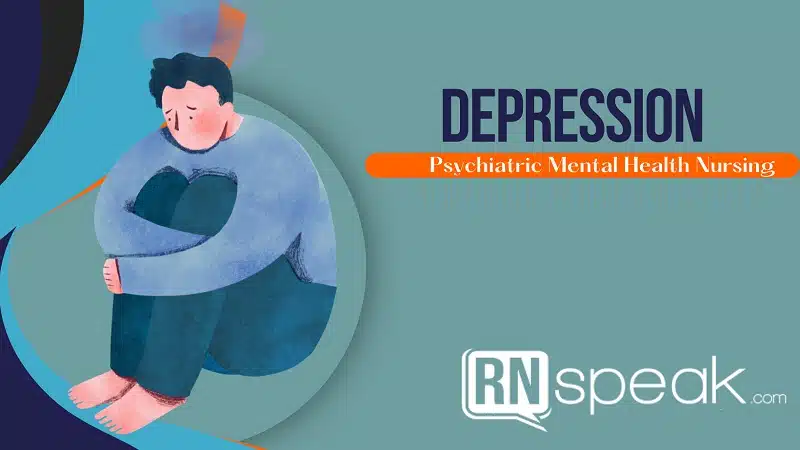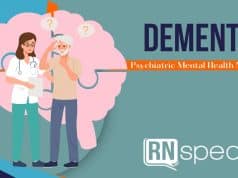Have you ever felt as if life is unfair? Have you ever been so down that you could not brush away the fears, pains, or worries in your mind like a dragging mystery? If that is, you are not alone. Depression often goes unrecognized by the person, himself, and not even his family members or co-workers. But it is not new in this era since it has been considered as a debilitating illness in the past up to the present, causing more disability than heart disease and stroke (NIMH, 2005).
Depression has many spectrums, and it has been classified in books under affective or mood disorders and those clients who have suicidal tendencies. The most common spectrum of depression is major depression. According to DSM IV-TR, clients with major depression do not experience shifts from one unpleasant mood to another, and the client experiences this state within two weeks.
They may exhibit five or more of the nine clinical symptoms:
- Depressed mood most of the day, nearly every day
- Significant lowering of interest or pleasure
- Significant changes in weight/ decrease or increase in appetite
- Insomnia or sleeping too much most of the day
- Psychomotor agitation or retardation
- Fatigue or loss of energy nearly every day
- Feelings of worthlessness/ excessive or inappropriate guilt
- Reduced ability to concentrate, think or make decisions
- Recurrent thoughts of death, suicidal plans, suicidal ideation, or suicidal attempts
It is defined by Huelskoetter (1991) as an emotional reaction, altered mood state, and physical symptom accompanied by the negative concept of self and marked low self-esteem, which is also associated with regressive and punitive wishes.
In connection, depression nursing interventions should be planned accordingly, going hand in hand with psychotherapy and medical treatments. Since in depression, the person may react to perceive loss with intense feelings of reduced self-esteem or confidence, and the client views himself negatively, various considerations should be made.
The following nursing interventions for depression are as follows:
Assess the client for clinical symptoms of depression. The symptoms should not be because of bereavement, a medical condition, drug abuse, or prescription medication.
Assessment may encompass several aspects like:
- Client’s appearance may show disheveled hair and clothes in low tone colors. Posture may be stooped and dull facial expression, reddened eyes from the previous crying, furrowed brow, or worried frown. The client may also be agitated. Note nonverbal behaviors for the avoidance of eye contact and consistency of mouth smile.
- Note how the client responds verbally. The pace of your nurse-client interaction may be slow since he may lack the interest in the topic or have low motivation to talk to other people.
- Observe and check for any physical complaints. Often, a client with depression will reveal some physical problems like constipation, anorexia, headache, and sleep disturbances- which are often associated with the emotional effects of the disease.
- Assess his behaviors. The most common behavioral symptom is being agitated. The client may also be withdrawn or isolates themself due to low self-esteem, has impulsive overeating, drinking, or other vices, and sometimes gets himself into fights.
- And also assess his feelings. A marked apathy, lack of humor, and irritability are common.
See Also
Conceptualize your goals with the client. Help them identify their strengths and goals for recovery from depression. These would include:
- Acceptance and awareness of the self-promoting positive concept of self.
- Personal hygiene
- Expression of anger and guilt in the appropriate way
- Realistic resolution of problems
- Resumption of activities as an outlet of unpleasant mood
- Verbal expression of feelings
Provide depression nursing interventions:
- Interact with the client in a slow-paced, low, and firm tone.
- Encourage him to verbalize his feelings, thinking, worries, etc., using broad, leading statements or open-ended questions.
- Maintain a therapeutic distance, exhibiting open posture.
- Do not hurry the client when interacting, instead be patient and show a sense of empathy.
- When the client can regain his energy to do tasks, encourage him to do personal hygiene, and encourage him that feeling good often starts when you also care about oneself.
- Be calm and supportive when the client shows irritability or expresses anger. Clarify for statements of blame and help him understand that being irate sometimes makes other people shun away; thus, you may also encourage the need for re-establishing relationships with loved ones.
- Listen to physical complaints and reinstall some behavior modification techniques.
- Appraise his strengths and recognize an activity accomplished. This way, you could help him improve his feelings about himself.
- Attend to his spiritual needs, too. If needed, ask the assistance of a clergyman or priest.
- Identify or ask the client what activities may interest him in doing. It should be productive and utilize his restless energy like drawing, etc. It should be non-stimulating and also limiting in some way that it would not affect the client emotionally.
- Prevent suicide by helping him feel that life is worth living. Please make yourself available for him to confide in and listen for cues of suicidal tendencies. Explain to him that a person with suicidal thoughts is not bad; instead, it is just part of the illness. Expressing his thoughts is helpful, and that you could do something about it.
Depression comprises most of the cases in mental health units, and our role in the recovery is essential. Gaining the client’s trust could make access to the potential realization of his strengths and limits as a person. That is why providing nursing care to a client with clinical depression is not easy because of some emotional outbursts and the like, so one should be aware of yourself prior to developing interaction with a depressed client.
References
-
- Huelskoetter, M. &.Murray, R. (1991). Psychiatric Mental Health Nursing: Giving emotional care. C & E Publishing Co. Shives, L. R. (2008).
- Basic Concepts of Psychiatric- Mental Health Nursing 7th Edition. Lippincott Williams & Wilkins. Wright, J. & Basco, M.(2001).
- Getting Your Life Back: The complete guide to recovery from depression. Simon & Schuster, Inc.
- https://writemypaperhub.com/
nursing-papers.html – nursing essay writing service for students







